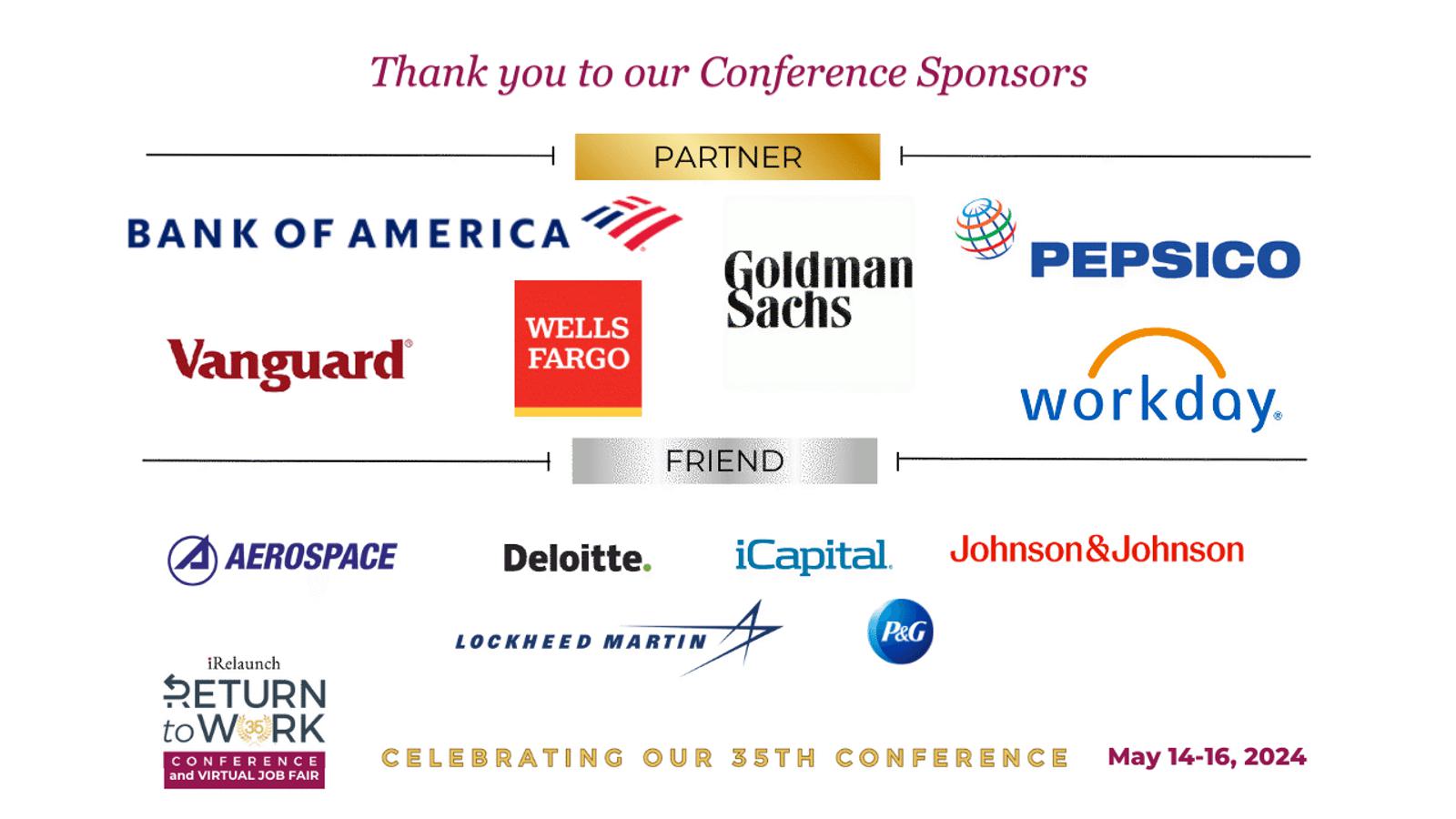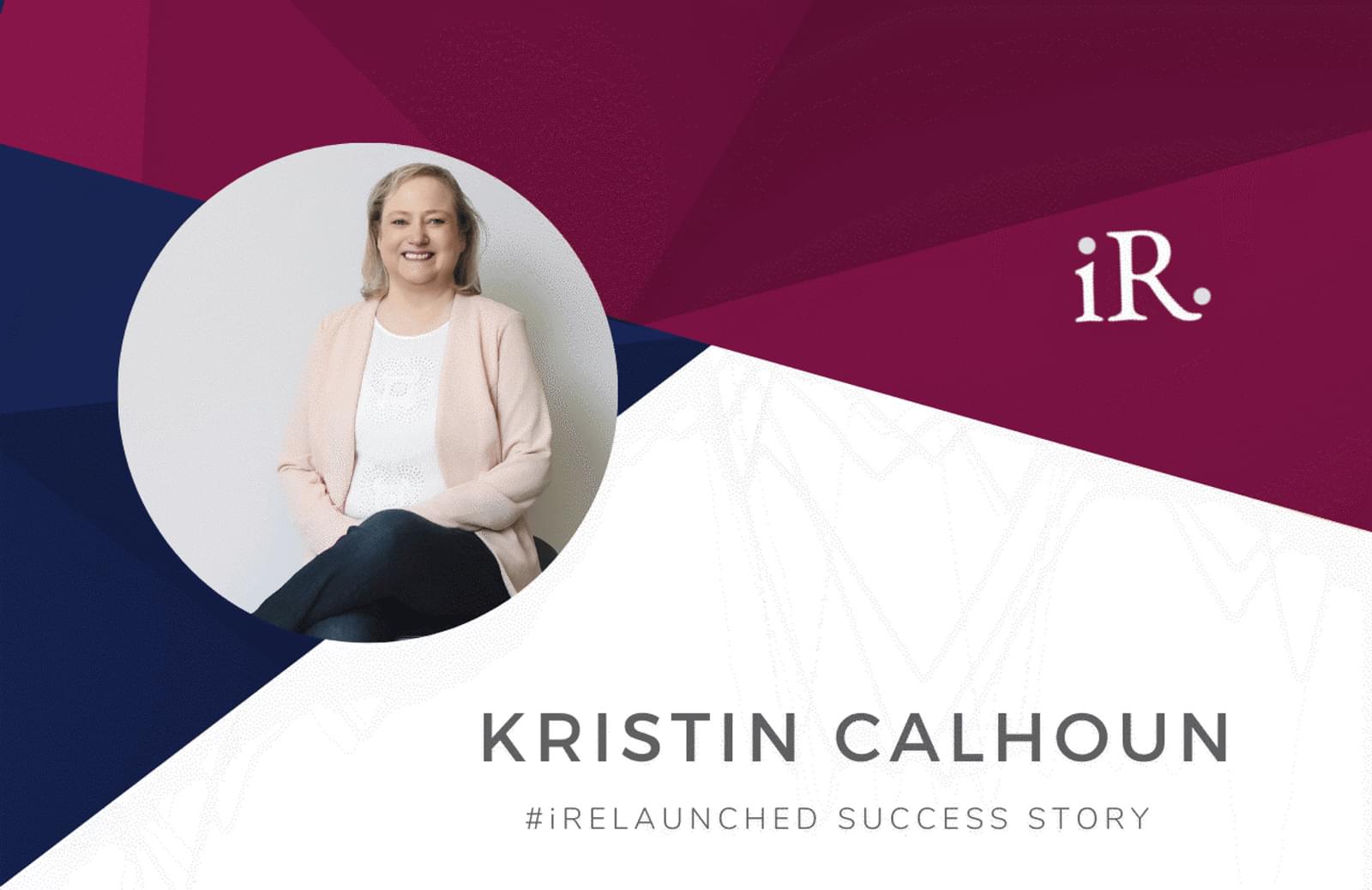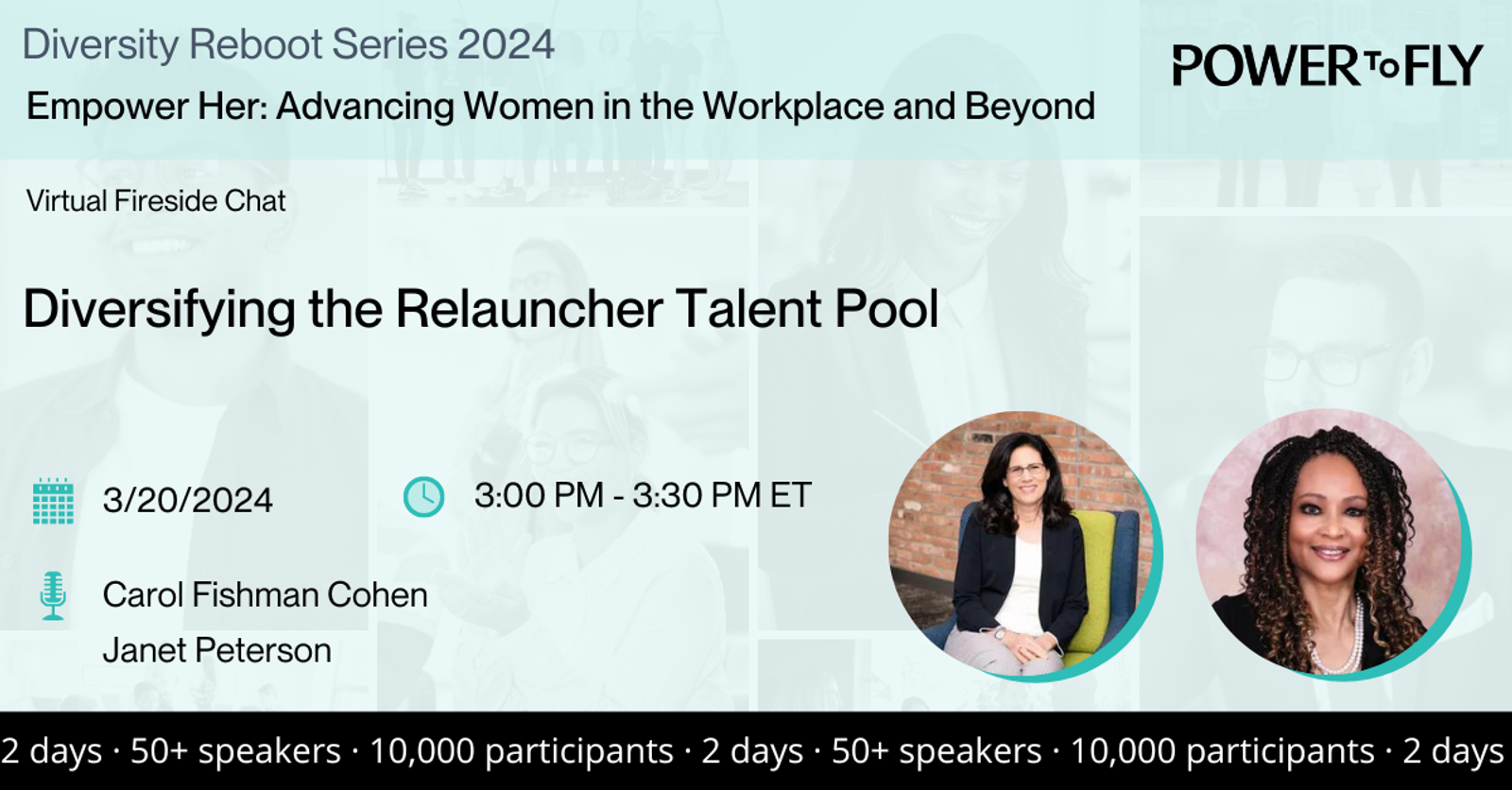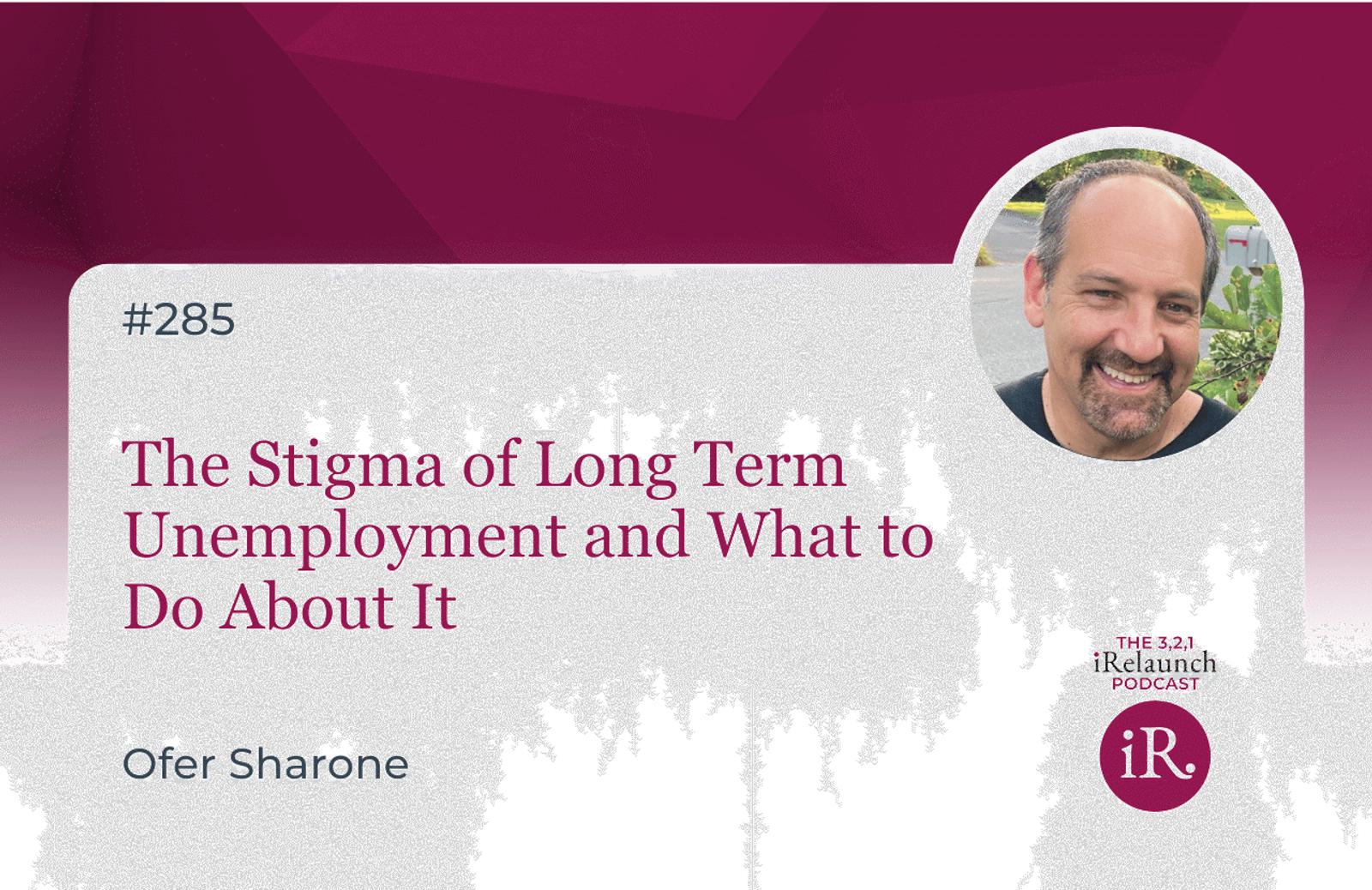
Episode 9: Don't Talk Yourself out of an Opportunity with Cheryl McGee Wallace
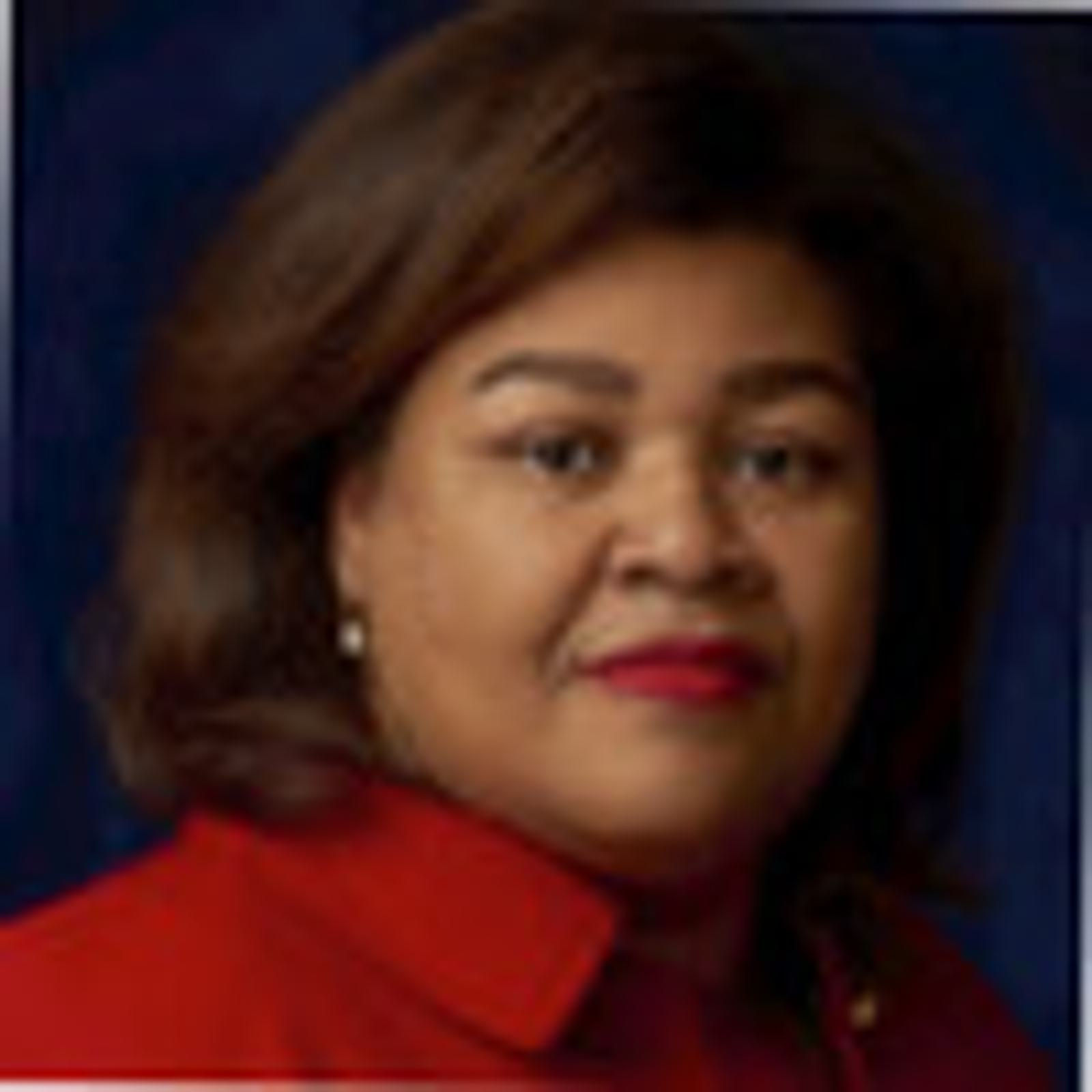
Episode Description
iRelaunch Chair and Co-Founder Carol Fishman Cohen speaks to successful relauncher Cheryl McGee Wallace about networking and maintaining the confidence you need to pursue return to work opportunities.
Read Transcript
Carol Fishman Cohen: [00:00:00] Welcome to 3,2,1 iRelaunch. I’m Carol Fishman Cohen, CEO and co-founder of iRelaunch. We bring you the most effective career reentry products and services. In each episode of 3,2,1 iRelaunch we'll be speaking with guest experts in the career reentry space to help make your transition back to work smooth and successful.
Joining us today from London is Cheryl McGee Wallace, one of my favorite relaunchers, who I've known for years from the beginning of her relaunch process. And I've been inspired by her story as she's transitioned along the way. Cheryl is also Manager at the Financial Services, Risk and Regulatory Center of Excellence for PWC. And she's a US qualified lawyer who specializes in financial services, regulatory strategies.
Hi Cheryl, thank you for being with us today.
Cheryl McGee Wallace: [00:01:00] Hi Carol. I'm very pleased to be here.
Carol Fishman Cohen: [00:01:03] So as a relauncher for yourself, I wanted to talk to you about some of the pivotal moments in your relauncher journey and you know, you and I have had lots of conversations about your relaunch.
So I really want to focus on certain elements of your relaunch that I think are particularly compelling. I remember you telling me that early in your reentry experience, you realized that your network was too heavily focused and too heavily weighted toward other people, just like you, the relaunchers.
And, I wanted to know how you went about shifting that.
Cheryl McGee Wallace: [00:01:38] Absolutely. So I would have to say that there were stages in the relaunch process and that particular stage was towards the end. So when I originally made the decision to return to work, I was going through a process of rebuilding my network and that was a process during which I worked with several career coaches to determine the areas where I wanted to work, what opportunities would be available to me, and how to leverage the background and education that I had.
An important turning point was a contract offer that I received where I was able to move from Virginia to New York City. Once I was in New York City, I network like crazy. I launched into my alumni network, because I needed to identify organizations that would fit my background. So that was the initial, the stage identifying what those organizations were. As I went through that process, I was very much on my own, it was me and a coach. But then along the way, I began to find other organizations such as iRelaunch and to begin to meet some other people who were relaunching at that time, I began to find that my network
was very much centered around other people looking for work. My relaunch coincided with the market crash, so I found myself in a networking organization with pretty high level executives who were also in the job market. So I needed to transition from those, looking to those who were in a position of hiring.
The way I made that transition was I began to look at organizations where people were doing the kinds of things that I wanted to do. So primarily one of the things that I did was I started attending events at the New York City Bar, unlike the New York State Bar, which is very regional. It deals with issues across the state.
I knew that I wanted to relaunch in financial services and the New York City Bar is very much focused on the financial services industry. I challenge myself to go to those events so that I could begin to be around a group of people who were not all in that job search mode, be it other relaunchers, or people who were out of work because of the market crash.
Carol Fishman Cohen: [00:04:16] So can you give us an example of when you found yourself in those events, how you pushed yourself to have conversations with other people there, and what did you say to them when you would run into them and how would you break the ice?
Cheryl McGee Wallace: [00:04:31] So I always from the beginning was prepared with the pitch, who I am, what is it? What is my background? What are my goals? What is it I'm trying to do? I had a business card. I had my resume set. So any event that I went to was in line with those career goals that I was pursuing. I was very much interested in the changes that were undergoing at the time in the financial services industry.
So I went to those events and they were very useful for me as well because there were skills development at the same time as networking. So say for instance, in the New York City Bar events, I'm in a room with practicing attorneys, attorneys who are presenting on issues of interests. I made sure that I asked the question either in the room by raising my hand and asking a question about the conversation.
I would approach the speaker and tell them that the topic was interesting. It was some issue of interest to me. I asked them a question and there were also times after these events, I would go back and write the presenter of some of these events and say, “Would you have time to talk to me? I'm returning to work after a career break, I found your topic very interesting. I'd like to talk to you about any feedback you might be able to offer to somebody like me who's returning to work.”
Carol Fishman Cohen: [00:05:54] Got it. That's really helpful. So essentially you were asking people for what is commonly termed an informational interview, but that can mean a lot of different things.
And I remember one of the other things that we spoke about when you were going through your process is that you said when you were able to get one of these informational interviews, you had to remind yourself to breathe and enjoy the process of meeting the interesting people. Sort of separate yourself from the fact that this was part of your job search and to really enjoy the interaction.
So can you just comment on that a little bit? Were you nervous when you had these informational interviews, and did you keep to a very specific timeframe and were there certain themes around what you were asking people when you were having those conversations with them?
Cheryl McGee Wallace: [00:06:45] Yeah, I was very focused as I am always, but even more. During this time I was very goal oriented, so whenever I had an informational interview, I would keep it to 30 minutes. I had an email that I used, “This is who I am. This is what I'm trying to do. I'd really appreciate your suggestions on how to market myself as I make a transition into the financial services industry.”
When I went to meetings, I would introduce myself to the person. I would tell them a bit about my background. I would always ask them about their background because people love to speak about nothing else more than they love to speak about themselves. But I learned wonderful things from all of these people that I met over the process of this time, but there were three questions that I always, always asked:
I would ask, “What do you read?” Because you can find some very interesting information. There were periodicals that I had not heard of at the time, Institutional Investor, for example. A lot of the people in the New York City financial services industry read that, I began to read that.
I would say, “Are there other professional networking organizations that you would recommend?”
And I would ask them, “Is there anyone else that you would recommend that I speak with?”
So those were my basic questions, but there were times when I was in my process where I was trying to discover what were the opportunities. When I went to New York, I needed to understand New York. It could have been a conversation with another lawyer in the financial services industry and I'd have a conversation about moving from New York to DC. You'd have to go with the flow. I'd have my basic questions, but I was always across from another human being who was interesting.
I can remember if I can give you one anecdote, a woman that I had an informational interview with, I was talking to her about being a lawyer in a huge law firm. She wanted to talk to me about being married. So we had a very interesting conversation where I was able to share with her the stories of my life managing a professional life and marriage. And she was more willing to open up about her real life experiences being in a huge law firm. And I was very grateful for that.
Carol Fishman Cohen: [00:09:18] That is great. And you know, I have to say, you often hear the advice of when you're in an informational interview to ask, who else should I be speaking to? But asking the person what they read, and what other professional networking organizations that they're in
I haven't heard that, and that is great advice.
So, thank you. I'm going to add that to my list of advice that I'm always keeping. When people ask me these questions, I really appreciate it.
So another part of your relaunch story was all about visibility, and how you made yourself more visible to other people and some of the steps that you went through when you were making yourself more visible. I know some of it had to do with setting up a LinkedIn profile or volunteering and social media. And I was wondering if you can give us a little bit of detail around, your activity in those areas. And then, I might have some followup questions for you.
Cheryl McGee Wallace: [00:10:23] So I didn't start with LinkedIn.
I find that a lot of relaunchers are intimidated by LinkedIn. I find even now that a lot of highly skilled professionals are intimidated by LinkedIn. So one of the first things that I needed to do was to get out into the environment, put myself out into that professional environment.
So, I speak several languages. I was on contract in Washington, DC. That organization put me in contact with a law firm in New York that needed a US lawyer who was admitted to the New York Bar and spoke fluent Dutch, so I ended up at a huge law firm in New York City. It was a great opportunity for me. And while I was there networking, I'm building experience.
So one of the coaches that I worked with at the time said, “You need to make sure that you have a presence.” So if I'm going to, for instance, the New York City Bar that evening, I may be meeting people and I may have given somebody my card, or we had a quick little conversation. They may very well look me up afterwards.
So I needed to have some kind of a skeletal LinkedIn profile. I started with the name, industry, New York city. I'm a contract attorney at this law firm and I put my education and as I continued to contract in New York city over time, that experience built up and I was able to make adjustments in my LinkedIn profile that showed that I was in the working environment in New York City, in the industry that I wanted to be in, so that my conversation began to change. So when I'm meeting people in these environments, they have no idea that I'm returning to work after taking time off for family. I have a presentation on my LinkedIn profile when I'm in those meetings with my business card, whatever the case may be. And that LinkedIn presence was a key part of that.
Carol Fishman Cohen: [00:12:28] Got it. you know, as you're talking, I just want to point out to our listeners that you're talking about a relaunch that also involved a change of location and, sometimes people are intimidated by the idea that they're moving into a brand new place where they feel like they don't have a network, but you know, you're talking about how some of the contacts that you had in the DC area sort of helped you then make connections in New York. And then how you just established your own ways without having a network in New York of meeting people through, for example, going to the New York City Bar events.
So I just wanted to highlight that because, I think sometimes people get intimidated by a location change on top of a relaunch. So could you, can you talk at all about volunteering? You had these contract assignments. Did you have any volunteer roles outside of that or not when you were in that stage?
Cheryl McGee Wallace: [00:13:27] No volunteer roles for me, but in the course of relaunching and meeting other relaunchers, I've met several women. And I speak of women, I know men are relaunchers as well, but I'm just only speaking from my personal experience. I've spoken to many women who volunteered in a range of places, professionally or even unpaid internships.
So when we're talking about volunteering, we're not just talking about volunteering with the PTA, and God knows I don't want to belittle that because that is a really, very important experience. It's how you present it, it's how you sell it, it's how you package that, and that's what's important.
So what's important about volunteering or accepting contracting roles is that it gets you out there. It allows you to have that first wrung on your resume that says, “Right now I am employed. I'm one step away from returning to work.” So your conversation is immediately about that topic that you're working on at that moment.
Carol Fishman Cohen: [00:14:33] Exactly. I was thinking about something else while you were just talking, Cheryl, and that had to do with your comment to me that you tried to schedule yourself to at least one event per week.
Was that really hard to do, to push yourself to get out of the house and go to those events week after week? Or did it get easier over time? And how did that evolve for you?
Cheryl McGee Wallace: [00:14:55] It was, it was easy in the fact that I was in New York and it was very exciting. It was difficult because I had to put myself out there and that's really, really very hard to do.
And my heart goes out to those who are in that process. Wondering, can I do this? And one of the reasons why I decided to write the blog posts is when you told me that you'd heard of relaunchers who were afraid to come to the iRelaunch Conference. And I thought if there's any safe place for a relauncher to go to get information, it has to be that iRelaunch Conference.
What I did was when I had these informational interviews, I'd say, “What kind of professional organizations do you work with, or are you participating in?” And I'd go. I’d register. I told someone that I had a Master's Degree in International Economics with a focus on European Integration, and someone told me about the European American Business Council. I went to those events and they may not have always been interesting, but I forced myself to go.
And some of them were very interesting and there were some where I met some really, very interesting people. But it's the overall accumulation of getting out there and becoming comfortable with that process where eventually it got easier.
You're developing skills. You're developing knowledge about the events that are going on and just feeling comfortable being in that working environment.
Carol Fishman Cohen: [00:16:30] Can you talk to us a little bit about your experience when you were at the iRelaunch conference? You met recruiters from PWC and then you went through a process that took a certain amount of time, like a lot of these recruiting processes can take months, and sometimes you can go from event to event in that recruiting process. And there are long gaps in between where there's not a lot of contact. How did you manage that and how you knew when it was right to sort of get back in touch with the person and check in or bug them about what's happening next?
Cheryl McGee Wallace: [00:17:08] Exactly. So, it's interesting that you say that you met me at the beginning of my relaunch process and I see it as the end of my relaunch process because there was so much that I had already done on my own because I had never heard of iRelaunch. So I had moved to New York. I had worked with several coaches and I was in the second cohort of the Goldman Sachs Returnship Program.
And it was during the course of that, that one of the other returnees on the program told me about iRelaunch. So I went to the very next iRelaunch conference. At that conference, I was already prepared as I could be. So I knew what my pitch was, I knew what my goals were, I was able to explain,
“this is the work experience that I've had, and this is how it applies to the work that you're doing.”
I'd had detailed, informational interviews to discover what I wanted to do, but then also to begin the process of packaging myself so that I knew when I went to the firm that I was in the package that they wanted.
And a little side note, I reached out to an alumnus from my graduate school to ask him to look at my resume before I sent it to PWC. He told me, “Take out the word compliance. We use the word regulation.” Those are the kinds of things that you get from doing informational interviews that you would.
Carol Fishman Cohen: [00:18:38] So you sought out from your alma mater who was working at PWC?
Cheryl McGee Wallace: [00:18:45] Exactly. So when I registered for the IRelaunch conference, I received a package in return and it said, “These are the firms who will be at our conference.” It says, “Consider who, which firm you'd like to meet. Prepare yourself for it. Have your resume ready, be able to speak to the areas of that firm that are of interest to you.”
When I got that information, I started off who within my network had worked with PWC, going to LinkedIn. You can search a firm and when you search the firm, it will tell you. The people who were within one, two or three degrees of your network. By doing that, I was able to identify, I believe, at least two or three alumni from Johns Hopkins who were at PWC.
I only asked them, “Would you please look at my resume to tell me, does it suit a role within your firm?” One person asked me, “Please let's meet for coffee.” I was thrilled. I didn't even ask that, I just wanted him to look at my resume. Another person called me and said, “Let's look at your resume, turn this, change this word, change that word, do this.”
So by the time I went to the iRelaunch conference, I was already prepared. I knew I wanted to work with PWC, but I knew I was nervous. So I went to three tables and I decided to leave PWC for last because I was nervous. And I needed to test out everything with the firms that I kind of wanted, but I wouldn't have been upset if I didn't get an offer.
And that was good exercise to prepare me for 20 minutes later, going to speak to the team at PWC. And by the time I got there, all of the time of preparation, the coaches, the informational interviewing, the forcing myself to get out there and do all of the networking that I did, the Goldman Sachs returnship program, which was an amazing opportunity for me, that kicked in.
And I was able to focus for that five minutes where I met that recruiter. We met, this was in October. They seemed interested at the time, but there's never any way of telling what the response will ultimately be. I had a screening interview in November. I had another follow-up in January and then from March until June, I had one call approximately every three weeks.
So it was a very long courtship. And then once I got in, a lot of it deals with just scheduling. So you start with someone who's a peer, and then you ultimately go to a senior partner. After I had interviewed with the senior partner, I felt very confident that I would ultimately get an offer. But the period of time was so long, I essentially wrote the firm that said I'm really very interested, can you let me know whether or not this is in the offing because I really needed to accept another opportunity?
Carol Fishman Cohen: [00:22:06] That's excellent. And thanks for walking us through that. I had a question about where were these interviews? A combination of phone and Skype interviews, and then mixed in with in-person? Or was the in-person just at the end or how did that work?
Cheryl McGee Wallace: [00:22:23] The in-persons were at the end. So I had to go through a process. There's the initial screening with recruiters. Then there was another one with the recruiter for the area that I was interested in, which was FS regulatory. And then from there, there were calls with peers. There was, I think, two in-person calls.
And then after that, I had a call with a director who soon became a managing director. And the very last call was with the senior partner. So anyone who was in New York City, I had a face to face. Anyone who was outside the city was a phone call.
Carol Fishman Cohen: [00:23:06] And would you be able to talk to us about some of the questions that you get asked? Were they mostly interviews to see if you felt like there was a personality and cultural fit, or were you ever asked, like to talk shop, you know, or define certain terms or talk about new regulations in the industry?
Cheryl McGee Wallace: [00:23:25] So the initial calls with the recruiters were, “What's your background?” I think, and if I can be candid, I believe the initial calls with the recruiter, particularly since I was recruited at the iRelaunch conference, dealt with more fitness, preparedness, readiness to return to work. I really do believe in retrospect, that was the purpose of those initial calls.
Then the followup calls with recruiters dealt with the recruiters who were in FS reg. And I began having conversations about my background and my interests. Those calls, I think, would be the same for anybody because a recruiter wants to make sure that you're interested in their area and not just looking for a job.
And at that time it was coming through somewhat the market crash. And I think there was a lot of careful vetting to make sure that firms were hiring people who really wanted to be there, and just weren't looking for cover from a very bad economy.
Carol Fishman Cohen: [00:24:36] Right. Right. And then did you practice any of the answers to interview questions? Did you do actual mock interview practice or say things out loud, answers to questions that you anticipated you'd be asked? How did you prep?
Cheryl McGee Wallace: [00:24:50] I think that's the purpose of the informational interviewing and also getting out there and networking, going to industry events. I was comfortable talking.I was comfortable telling my story. I was comfortable explaining why I'm interested in financial services and what I expected my ultimate career goals to be, and how I thought a role at PWC would fit into that.
So I think you do yourself a disservice if you're waiting for the interview, if you're out there doing something every day, every week, you can enjoy the process.
And really, I was able to enjoy the process. It was a lot of fun. There were days, believe me, there were days that were really very difficult. There were some people who were not so nice. There were people who were rather discouraging. But all in all, I met a lot of very interesting people. This may have been, I'd say approximately 10 years ago, there are people that I met during that process who are my dear friends today.
Carol Fishman Cohen: [00:25:58] Wow. You had mentioned that you had planned an alumni event on networking and during the event, someone who asked a question that had some doubt in it, and your flag went up immediately that you knew the person was a relauncher. And this was from your vantage point now of having already been relaunched.
And I was just wondering about that interaction and how you detected it and how you respond to people who are early in the process who really have that sense of doubt.
Cheryl McGee Wallace: [00:26:33] Yeah. So I, as you say, I planned an event on networking with my alumni association here in London, actually. And we all had to introduce ourselves in very small groups and then come back in the large group and talk about what the experience was like.
And there was one particular person who began to ask questions. How do you introduce yourself...if? And then the ifs were, if you're not being paid, if you haven't been in the working force for a long time? And afterward, I went up to her and I introduced myself and I said, “You're relaunching, aren't you?”
And she said, she was, and I said, “Would you please let me know what your background is?” And she said that she was a lawyer working for an NGO that was placing refugees. And I was absolutely amazed. The fact of getting paid in that context was completely irrelevant. And I began immediately sharing with her all of the information that I had collected over time, how to set up a LinkedIn profile.
I always send people immediately a link to iRelaunch because in my view, it's one stop shopping. Everything you need is right there. And you're automatically with a group of people who know what you're going through. I put people in contact with the iRelaunch LinkedIn group, because it will encourage them to establish a LinkedIn profile.
But then be there within that group of people who can say yes, do this, I've looked at your profile. Maybe you should consider doing this, doing a particular thing with that with your profile.
Carol Fishman Cohen: [00:28:18] Got it. So Cheryl, I just want to wrap up here. First of all, I just want to acknowledge what a wonderful friend you've been to iRelaunch and how generous you have been over the years in giving advice to relaunchers one-on-one and now here through this podcast. And your story and the frank way that you talk about it is so inspiring and instructive.
So I just wanted to say thank you, and also just wanted to end by asking you, if you have a favorite piece of relaunch advice, even if it's repeating something that we talked about already, during this podcast.
Cheryl McGee Wallace: [00:29:03] So I met a woman along the way, and it was very much at the depth of the financial crisis and I was particularly discouraged and she said to me, “Someone out there needs your skills, it's your responsibility to find them.”
And I found that very, very encouraging because it helped me focus on the fact that there is a place for that. There was a place for me at that time that I had skills that were very much sought after. And that was just a low moment. And even now it's kind of hard to remember what that was like. But when I meet people who are in that place, I feel like it's my responsibility to encourage them to move on. It may take a long time. It really may take a long time, but there's a way to enjoy the process and learn from that process so that you're even better prepared when the opportunity comes.
Carol Fishman Cohen: [00:30:00] What a perfect way to end this podcast. And thank you again, Cheryl McGee Wallace, for all of your wisdom and instruction and inspiration about relaunching.
Cheryl McGee Wallace: [00:30:13] My pleasure.
Carol Fishman Cohen: [00:30:21] If you have any comments or questions, please email us info@irelaunch.com. That's I R E L A U N C H.com and be sure to visit our website iRelaunch.com.

